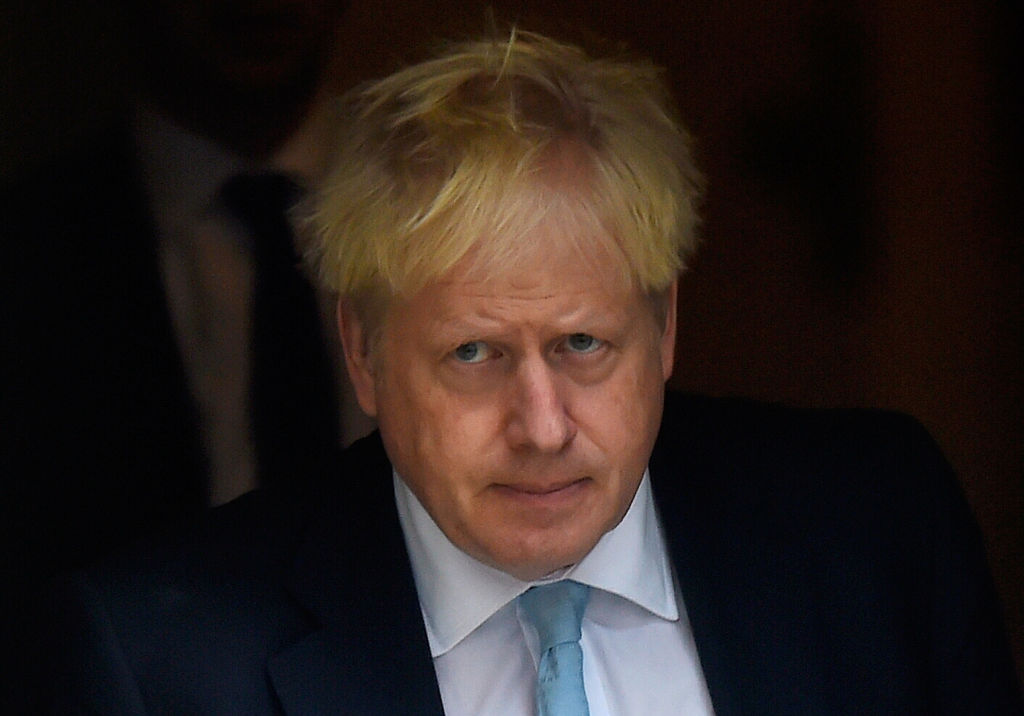What happened in Brexit this weekend? Here is the story in one sentence. Boris Johnson asked the EU to extend UK membership, something he said he would never do. The rest is spin.
How many times did Boris Johnson promise not to seek an extension of the UK membership of the EU? More than I can count.
Yet that is what he has now done. By sending a letter to the European Council requesting an extension, the Prime Minister has done something he said he would not do. He talked a good fight, then caved.
There are perfectly good reasons for that; I suspect many of the voters he needs will accept them. There is also a debate about whether any of this matters: he may well get a majority for his deal next week anyway.
But those things are secondary elements of this story. The simple central fact here is that he complied with the Benn Act and sent the letter.
The rest – the second letter, the “cheap photocopy”, the lack of a signature – is chaff, theatrical nonsense scattered by No. 10 to distract from that central fact. Quite successfully too. Newspapers and political Twitter are full of talk about those props, distracting from the main event, the request for an extension he said he’d never seek.
Even that famous second letter confirms that the first, unsigned one has force: “It is, of course, for the European Council to decide when to consider the request and whether to grant it,” the PM writes, a line that should end any talk that he’s tried to frustrate the Benn Act. He has complied with it, and well done him for doing so. The consequences of Britain having a PM willing to break the law to make political points would be horrible.
That’s the story No. 10 should be selling a story of a prime minister doing sensible, pragmatic things in the British way, but sadly we just get spin instead. And some of the spin is frankly silly.
Our own Robert Peston reports No. 10 insiders as suggesting the PM has “stuck two fingers up” the way EU and “expects to see MPs in court”.
.@BorisJohnson will tonight stick two fingers up at the Benn Act by sending the letter to @eucopresident it stipulates asking for a three-month Brexit delay but refusing to sign it. He expects to see MPs in court.
— Robert Peston (@Peston) October 19, 2019
In the Sunday Times, meanwhile, Tim Shipman, arguably the preeminent Lobby reporter of the age, reports that No. 10 aides “think this could conclude with some of them in jail,” a fate to which they manfully say they are prepared for:
“There will be a court case to punish us for cheating to get around the Benn Act,” one is quoted as saying. “That will have unfortunate consequences for some of us but it doesn’t stop us leaving.”
Such heroism. Sadly, of course, it’s cobblers, meant to make the punters think that the PM and his team are fighting to the last to avoid doing something they’ve already done: ask for that extension.
Now, for the avoidance of doubt I’m not criticising the journalists I’ve just named, not least because they’re better reporters than I ever was. Quite the opposite: I’m sympathising. The first job of a political reporter is to report what people in politics say. But – as Donald Trump has shown – that duty leads journalism into choppy waters when people in power say things that are essentially untrue.
There’s been a lot of debate in recent weeks about reporting “No. 10 sources” and the role of blind quotes. I think that’s a good debate to have, but in the end, all reporters can do is report, and then trust the readers, watchers and listeners to reach their own judgments about the facts and claims they report.
Remember it was barely days ago that No. 10 was telling James Forsyth this about “the Surrender Act”:
“The Act imposes narrow duties. Our legal advice is clear that we can do all sorts of things to scupper delay which for obvious reasons we aren’t going into details about. Different lawyers see the “frustration principle” very differently especially on a case like this where there is no precedent for primary legislation directing how the PM conducts international discussions.”
All sorts of things? Well, in the words of one Brexiteer participant, it turns out No. 10’s cunning plan to defeat the Surrender Act was actually to surrender to it. That’s so cunning you could stick a tale on it and call it a weasel, eh Baldrick?
But that doesn’t mean James was wrong to report those words from No. 10. Quite the contrary. Having obtained that account from Downing Street, he did what journalists do: he published them, so that people could judge the people in power by comparing the things they say with the things they do. If “Downing Street sources” hadn’t been reported as making promises and threats to frustrate the Benn Act, it would be less obvious to the public today that those promises and threats were empty.
Boris Johnson and his team said the Prime Minister would not request an extension. The Prime Minister has requested an extension. The rest is spin. Ignore it.







Comments